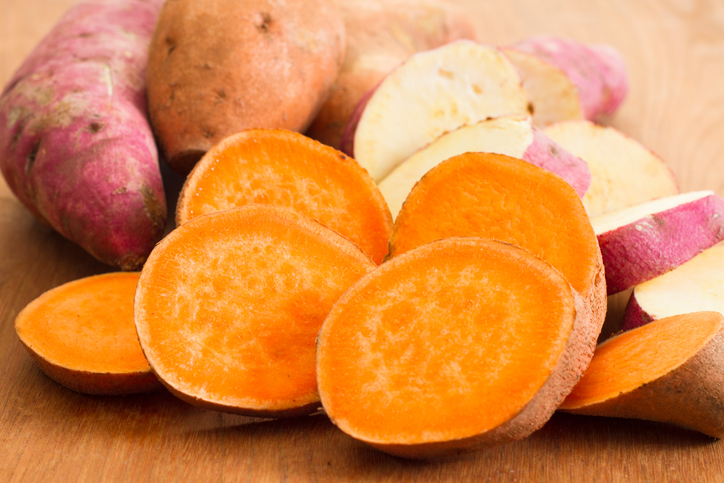
Sweet potatoes qualities – Lots of recipes!
Sweet potatoes.
Why should we eat them? What are the health benefits?
Sweet potatoes are the source of carbohydrates. It is worth to include them in the diet with digestive problems, inflammation, they are also a good alternative for diabetics.
In addition, it is an excellent source of carbohydrates for athletes during the training period !!!!
Sweet potatoes are considered “the best of all vegetables” in a special ranking created by the “Center for Science in the Public Interest”.
Let’s look a bit more into the health benefits of sweet potatoes.
Sweet potatoes are an excellent source of carbohydrates (about 20 g in 100 g and about 100 kcal in 100 g).
They have a low glycemic index (lower than in traditional potatoes), so the process of releasing energy from them is slow.
Immunological system
Sweet potaotes are a rich source of beta-carotene, which is an important antioxidant. With its vitamin-C and B complex and iron and phosphorus, they are also a great booster of the immune system.
Inflammation
As with ordinary potatoes, the sweet potatoes also have anti-inflammatory properties.
This is mainly due to the presence of beta carotene, vitamin C and magnesium.
Asthma
Sweet potatoes are effective in treating, bronchitis and lung infections, also give relief to asthmatics.
Appropriate concentration of vitamin C, iron and other nutrients helps to cure respiratory tract inflammation.
Sweet potatoes also have a warming effect on our body (according to Oriental medicine), probably due to the sweet taste and the nutrients contained.
Joints
Beta-carotene, magnesium, zinc and B complex are important ingredients for joints. The sweet water in which the sweet potatoes are cooked can be used to relieve arthritis pain – potato baths.
Digestion
The fiber content of the sweet potato is higher than that of ordinary potatoes. When they are linked to minerals such as magnesium, they help digestion. Sweet potatoes are easy to digest because they contain mainly starch. By the way they soothe the stomach and intestines. They have less calories, more fiber, and less starch than regular potatoes, so they digest faster! Glucose / fructose contained in sweet potatoes makes yams a great meal for athletes.
Beta carotene
It’s an antioxidant and anti-cancer substance. Beta-carotene and vitamin C contained in sweet potato have a beneficial effect in the treatment of cancers: colorectal, prostate, kidney and other internal organs
Stomach ulcers
Sweet potatoes have a soothing effect on the stomach and intestines. B-complex vitamins, vitamin C, beta-carotene, potassium and calcium contained are effective in treating stomach ulcers. In addition, the fiber found in them promotes constipation, while showing anti-inflammatory effect, besides soothing effect, reduces pain and inflammation of stomach ulcers.
Diabetes
Contrary to popular belief, sweet potatoes can be eaten by diabetics and people who use a low-carbohydrate diet.
Effectively regulate blood glucose levels, resulting in proper insulin secretion. Of course, as always moderation is recommended;)
Water
High concentration of potassium keeps this balance of fluids and electrolytes
Sport
Sweet potaotes are an excellent source of carbohydrates, which are an essential part of a sports meal. I recommend especially as a periorday meal. Before training in combination with other carbohydrates such as rice and because they have more simple sugars, they are also an ideal supplement to your post-workout meal.
Other benefits
They are helpful for the proper functioning of the arteries and veins because they protect their walls from hardening. High concentrations of beta-carotene (alternative form of vitamin-A) and phosphorus are excellent both for eye and heart health.
Recipes
Sweet potatoes pate with dried tomatoes
Bakes sweet potatoes with almond butter
Cake with sweet potatoes and coconut
Nuggets with sweet potatoes fries
Source:
Abidin P.E. (2004). Sweet potato breeding for north-eastern Uganda: Farmer varieties, farmer-participatory selection, and stability of performance. PhD Thesis, Wageningen University, The Netherlands, ISBN 90-8504-033-7, 152.
Sawicka B., Pszczółkowski P., Mikos-Bielak M. (2000). Biologiczna wartość bulw Ipomoea batatas [L.] Lam. w warunkach Lubelszczyzny. Rocz. AR w Poznaniu, 323 (31), Ogr., 1, 453-457



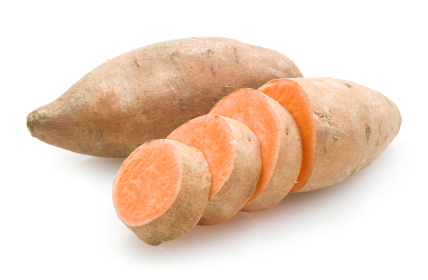
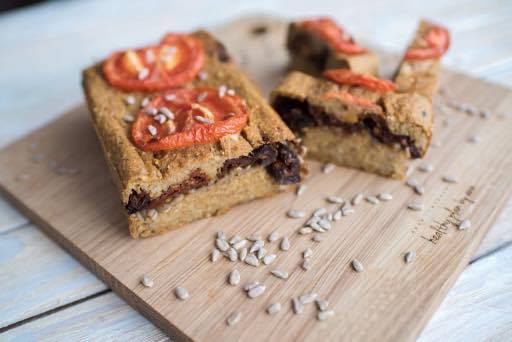



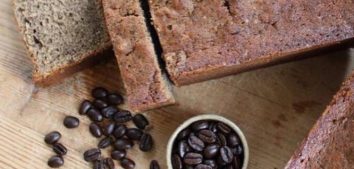
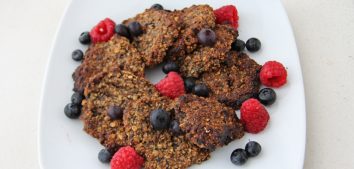


Comments No Comments
Join the discussion…